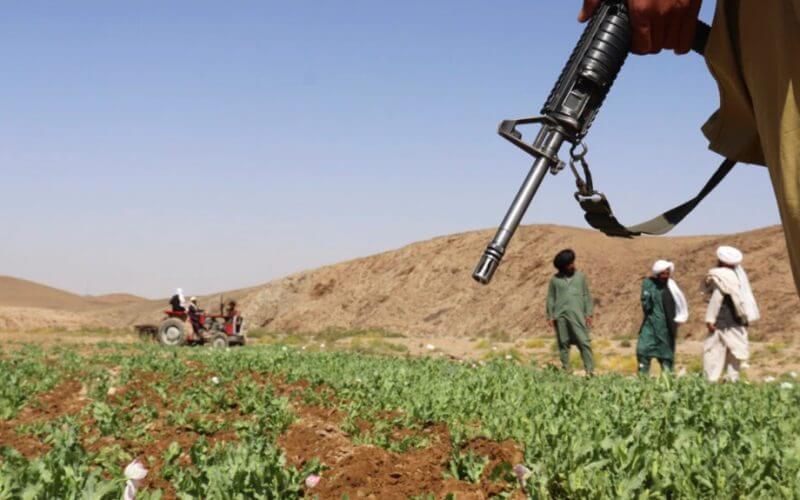The supreme leader of Afghanistan’s Taliban declared Sunday that their campaign against illicit drug production in the country had eradicated the cultivation of opium poppies, which are used to make morphine or heroin.
Hibatullah Akhundzada's declaration follows recent media reports and satellite images backed by the United Nations and the United States, concluding that annual poppy cultivation has "significantly" decreased in the world’s biggest opium producer.
The reduction is credited to a decree issued by the reclusive Taliban chief in April 2022, which strictly prohibited the cultivation, production, usage, transportation, trade, export, and import of all illicit drugs in Afghanistan. The ban allowed anti-narcotics Taliban units to eradicate poppy farming across the impoverished war-ravaged country, which accounted for 85% of global opium production until last year, according to United Nations estimates.
"As a result of continued efforts of the Islamic Emirate, the cultivation of poppy has been eradicated in the country," the Taliban chief said in his statement in connection with the annual Islamic Eid al-Adha festival later this week. He used the official name of the Taliban government.
"Farmers are looking for alternatives as legal cultivation continues to grow. Many citizens, especially the [Afghan] youth, are now saved from being exposed to harm," Akhundzada stated.
Related Story: Afghan with Terror Ties Apprehended at Border Near California









